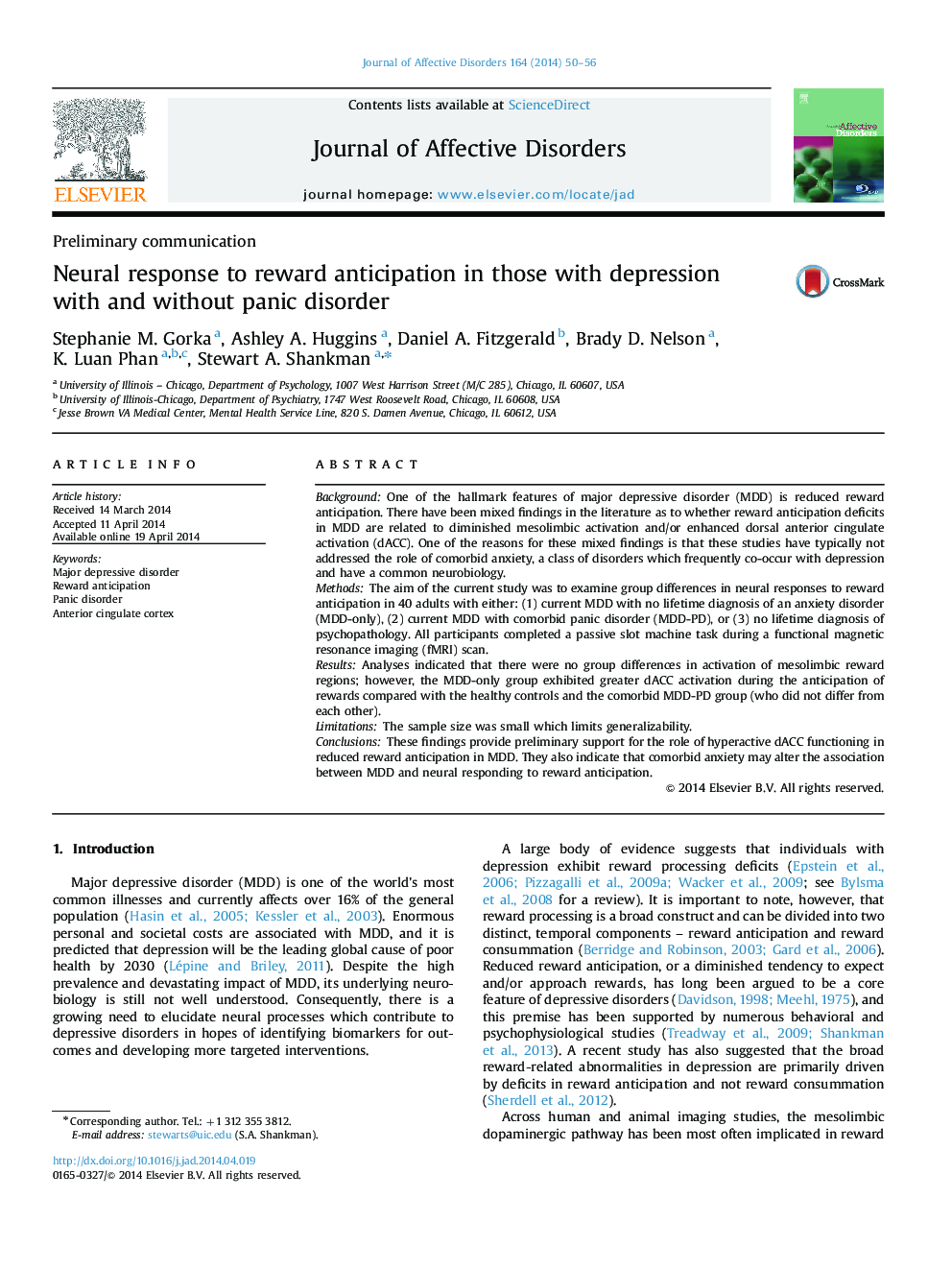| Article ID | Journal | Published Year | Pages | File Type |
|---|---|---|---|---|
| 6233005 | Journal of Affective Disorders | 2014 | 7 Pages |
BackgroundOne of the hallmark features of major depressive disorder (MDD) is reduced reward anticipation. There have been mixed findings in the literature as to whether reward anticipation deficits in MDD are related to diminished mesolimbic activation and/or enhanced dorsal anterior cingulate activation (dACC). One of the reasons for these mixed findings is that these studies have typically not addressed the role of comorbid anxiety, a class of disorders which frequently co-occur with depression and have a common neurobiology.MethodsThe aim of the current study was to examine group differences in neural responses to reward anticipation in 40 adults with either: (1) current MDD with no lifetime diagnosis of an anxiety disorder (MDD-only), (2) current MDD with comorbid panic disorder (MDD-PD), or (3) no lifetime diagnosis of psychopathology. All participants completed a passive slot machine task during a functional magnetic resonance imaging (fMRI) scan.ResultsAnalyses indicated that there were no group differences in activation of mesolimbic reward regions; however, the MDD-only group exhibited greater dACC activation during the anticipation of rewards compared with the healthy controls and the comorbid MDD-PD group (who did not differ from each other).LimitationsThe sample size was small which limits generalizability.ConclusionsThese findings provide preliminary support for the role of hyperactive dACC functioning in reduced reward anticipation in MDD. They also indicate that comorbid anxiety may alter the association between MDD and neural responding to reward anticipation.
